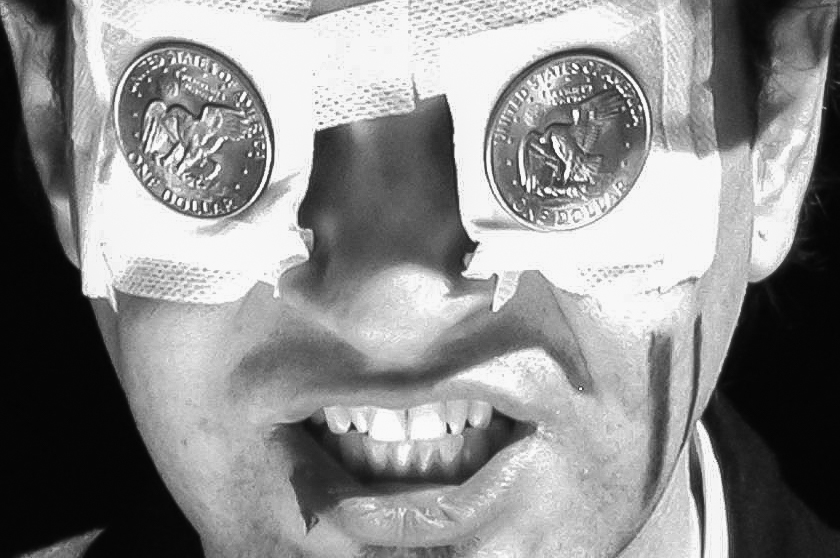How can theatre make a social contribution?
Broadly speaking, theater makes a social contribution in the same myriad ways that art in general does. Theater creates the cultural life in which we all live, it reflects our image back upon us, the way we live, fight, die, and love. It is a forum for us to grapple with eternal questions and the pressing issues of our day. More specifically, however, there have been many theatre practitioners in the last century whose work was and/or is dedicated to social change. I have in mind particularly the work of Brecht and Boal.
Can theater produce public discussion of vital social issues?
Yes, undoubtedly so. Again, this is one of the roles that theater, and art more generally, serves. Since 9/11, I have given much thought to the role of the artist in society. They say that everything changed after 9/11. If this is so, it means that the role of the artist changed as well. But has it? And if so, in what way? I’m not sure. Perhaps our roles as performers are the same as they always were: Fool, tramp, jester, gadfly, mourner, clown, judge, conscience, etc.
Why is it important to present these types of issues?
In the past decade, the popular press has fallen into the hands of fewer and fewer companies, fewer and fewer interests. Art in general and theater/performance specifically can, perhaps, serve to break into the benumbing cacophony of homogenized voices that dominate social discourse. Let me use a metaphor here. When a species reproduces within too small a gene pool, when it doesn’t receive enough variety from new genetic sources, it becomes weak and prone to disease. The same may be said of our culture and our discourse. When things become too homogenized, the society and culture become decadent, weak, and easily led. The society becomes sick. The artist, in this regard, serves an important function. To shift metaphors for a moment, the artist can serve as a cultural physician, diagnosing and applying therapy –often of the homeopathic variety.
What has been your experience with “Honorable Discharge”?
“Honorable Discharge” [written by Jeff McMahon] juxtaposes the death of Mario Madrigal, Jr. with the war in Iraq. The piece is for me about how people respond to what they believe is a threat, how they respond when they think they are in danger. Police perceived the 15-year old boy as a threat, and in a similar way, the government perceived Saddam Hussein as a threat too. In both situations they responded with overwhelming force. The response is irrevocable: you can’t undo it; you can rebuild, but you can’t undo it. And the saddest of all is later realizing that you made a mistake. The police and the military may not admit it was a mistake. One reason may be because of arrogance, but mainly because recognizing the mistake undermines power itself. People may lose confidence, and they need people to have confidence in the government. They fear for their lives; they fear losing power. The piece also explores, through a number of voices, what it must feel like to kill a 15-year old boy; what it must feel to be the mother of that boy. It is a very low-tech piece; we use two microphones, a bull horn, and a tape measure to discuss the safety zone. For me, it is fascinating that there’s actually a distance. What is the nature of this line? We have to respond to that: where’s that line for you, for me, for the country?
Is an actor an activist?
Actors are lousy activists, generally speaking. It’s like asking “is a taxi driver a traffic cop?” The jobs are just different. Of course, an actor can be an activist, but the jobs remain largely separate. However, it’s interesting to note that the two words have the same root. They both emerge from the verb “to act”. Do something. That is the imperative for both the actor and the activist.
Lance Gharavi – Actor, director, performance artist, technologist, scholar, and educator. He received his Ph.D. from the University of Kansas in 2000 and is currently Assistant Professor of Performance Technology for the Department of Theatre at Arizona State University. An early pioneer in the field of digital performance, he was one of the co-founders of the internationally celebrated Institute for the Exploration of Virtual Realities. His work has been widely written about in books, journals, and magazines around the world, most recently, in Antonio Pizzo’s Teatro e mondo digitale (Marsilio, 2003). His most recent article, Dancing on the Emerald Table: (Mis)adventures in Performance and Esoterica is forthcoming from Text and Performance Quarterly (Routledge).
© 2004 - 2025, Eduardo Barraza. All rights reserved.





